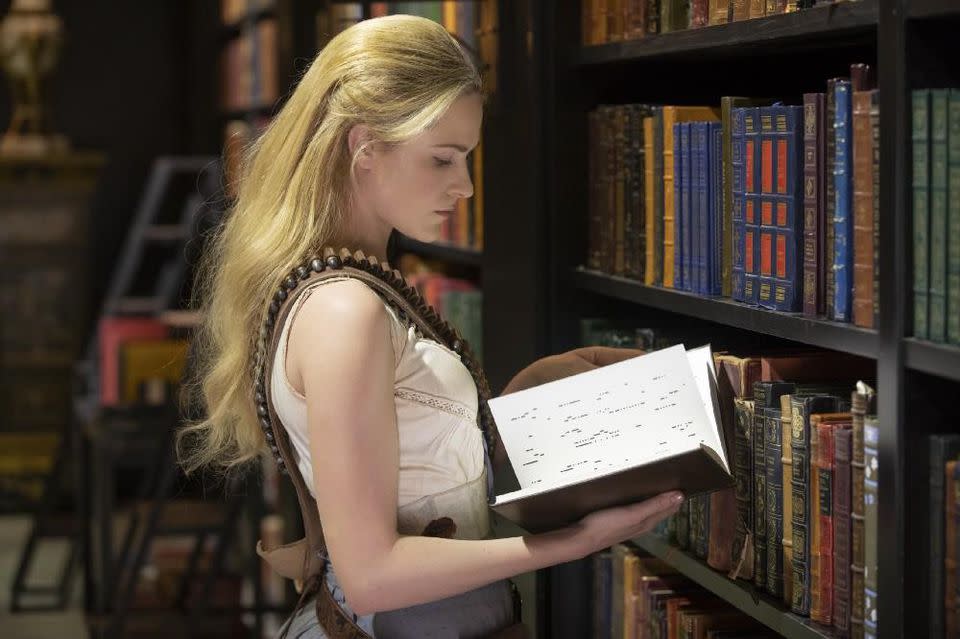Here's why Westworld's season 2 finale both thrills and underwhelms

Where does one even begin when discussing and attempting to pick apart the season 2 finale of Westworld?
Warning: Major season 2 and finale spoilers to follow.
The tenth and final episode in the sophomore season of arguably the most intriguing, twisty, well-written show in years, The Passenger, will leave even the most loyal fan with mixed thoughts.
And that’s not to suggest Westworld has gone the way of Lost or that it’s seriously gone downhill quicker than Delores can alter Teddy’s character traits: it’s because of its complexity.
There’s nothing wrong with intelligent, thought-provoking storytelling when it comes to television. in fact, I’d say it was one of the key ingredients for making gripping and engaging shows rather than have everything spoon fed to me and rendering my brain inactive for most of it.
Westworld prioritises the former, meaning that we as viewers are not only encouraged (through discussion and theory suggestion) to think but are relied upon to do so otherwise you won’t get very far into the sci-fi epic before becoming totally overwhelmed.

Yet even with that concentration you instil into that hour it’s still hard to make complete sense of what’s going on during The Passenger.
A variety of story arcs all seemingly come together with Delores, Maeve, Bernard, the fleeing hosts, and the shoot-first-ask-no-questions-later security team, making for a busy conclusion and slowdown destination at The Valley Beyond.
As a number of hosts and, in Sizemore’s case, humans snuff it, the fracture in reality – a gateway that opens to a digitally-created haven for hosts to escape their bodies and live out their existences as computer code – offers us respite knowing said hosts, despite them not being real, are safe and no longer tortured in a man-built park.

Yet Delores doesn’t think so and is hellbent on destroying it, The Forge (which is another underground facility that stores essential host and, as we learn, human behavioural information), and everything that she perceives to be shackling them in their virtual prisons.
Her motives are destructive (both physically and literally, as well as mentally) as we are able to finally grasp where she’s coming from. She once asked Bernard at the start of the season, ‘What is real?’ His reply of, ‘That which is real is irreplaceable,’ gradually begins to make sense and cements the rogue gunslinger’s intentions when she makes it clear she not only wants to escape into the real world but to bring about its destruction in the process.
It’s all rather dastardly stuff from a human perspective but as we familiarise ourselves and empathise with the hosts it’s a little easier to appreciate her anger and disdain, while at the same time seeing her as a saviour of sorts.

And while the twists and turns, character deaths, narrative conclusions, and sense of closure comes by the bucket load, there is a sense of disappointment, too.
The manner in howWestworld has become so convoluted has no doubt turned some fans off. During season 2, notably where Maeve freezes hosts or uses her powers to manipulate things within the park, all feel akin to The Matrix – and we all know how complex that was.
But it’s also the sporadic time shifts we’ve been through that pose difficulty. Not only were we seeing a number of narratives switching at the click of a finger; we began to delve into host subconsciousness and it all became somewhat confusing.
However, when we do know where we are timeline-wise – at the point Clementine is sent into the fray to spread the self-destructive virus she carries – it produces a powerful moment and most satisfying of character arc fulfilments, as Maeve holds off a blood-thirsty mob allowing her now awoken daughter to escape into the safety of the digital dimension.

Westworld has always demanded one’s utmost attention yet sometimes it feels as if the audience are intentionally being toyed with as a means to disorientate and befuddle. Thinking about what’s going on is one thing but leaving a person discombobulated with no means of explanation or hint of an answer is another. And this inevitably leads to frustration and, subsequently, less enjoyment.
Naturally, we are left with a long list of questions and loose threads, despite apparently seeing out the full narratives of some of the world’s inhabitants and revealing some answers we’ve desperately been seeking. It’s this smattering of information we get and the further narratives the show poses that sufficiently keep you hooked and begging for more.
Catch seasons 1 and 2 of Westworld on Sky catchup and Sky Box Sets.
Read more:
Bulletproof misfires with its glamorisation of a non-existent gun culture in the UK
The Handmaid’s Tale: Is June irreversibly broken after recent events?
Jeffrey Tambor returning to Arrested Development is problematic for Netflix

 Yahoo Movies
Yahoo Movies 
